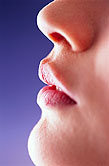
SATURDAY, Jan. 31, 2015 (HealthDay News) — Nosebleeds are a common during the winter and shouldn’t be cause for concern, an expert says.
“Cold winter air can be drying and irritating to the nose, and so can forms of indoor heat, such as forced air and fireplaces. Blood flow from the nose can range from a few drops to a real gusher,” explained Dr. James Stankiewicz, chair of the otolaryngology department at Loyola University Medical Center in Maywood, Ill.
“Older individuals are more susceptible to nosebleeds in winter because their mucous membranes are not as lush and the dry air causes the thinning blood vessels in the nose to break,” he said in a university news release.
And older women and people taking blood-thinning drugs have an even greater risk. “Women who are postmenopausal are especially vulnerable to nosebleeds because of the decrease in estrogen that increases bodily fluids. Anyone who is taking blood thinners such as an aspirin regimen or Coumadin also is prone to nosebleeds,” Stankiewicz added.
He offered the following advice.
If you get a nosebleed, don’t panic. “Tilt your head back and apply firm pressure to the nostrils for about five minutes,” Stankiewicz said.
Apply ice. The cold causes blood vessels to constrict, which limits and slows blood flow. Put petroleum jelly on cotton pads and insert them into your nostrils.
“Go to the doctor if the bleeding is profuse and will not stop. The bleeding vessel will likely be cauterized, meaning heat will be applied to the wound to stanch the flow,” Stankiewicz said.
There are some things you can do to prevent winter nosebleeds, too.
“Get a humidifier and run it, especially in the bedrooms, with the door closed, a few hours before bed. You will be spending eight hours or so asleep and your nose, like you, needs a soothing rest,” Stankiewicz said.
“A dab of petroleum jelly on either side of the septum, two times per day, will aid moisture. Saline sprays and specialized gels and ointments also are readily available at stores,” he said.
More information
The U.S. National Library of Medicine has more about nosebleeds.
Copyright © 2026 HealthDay. All rights reserved.

